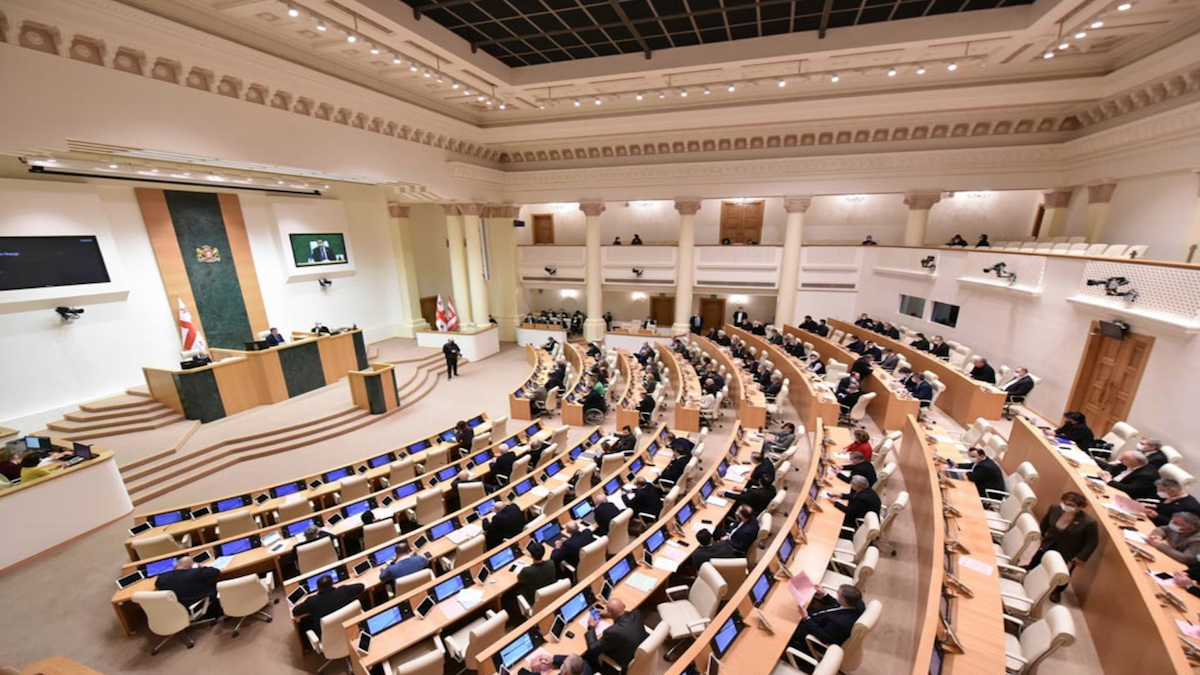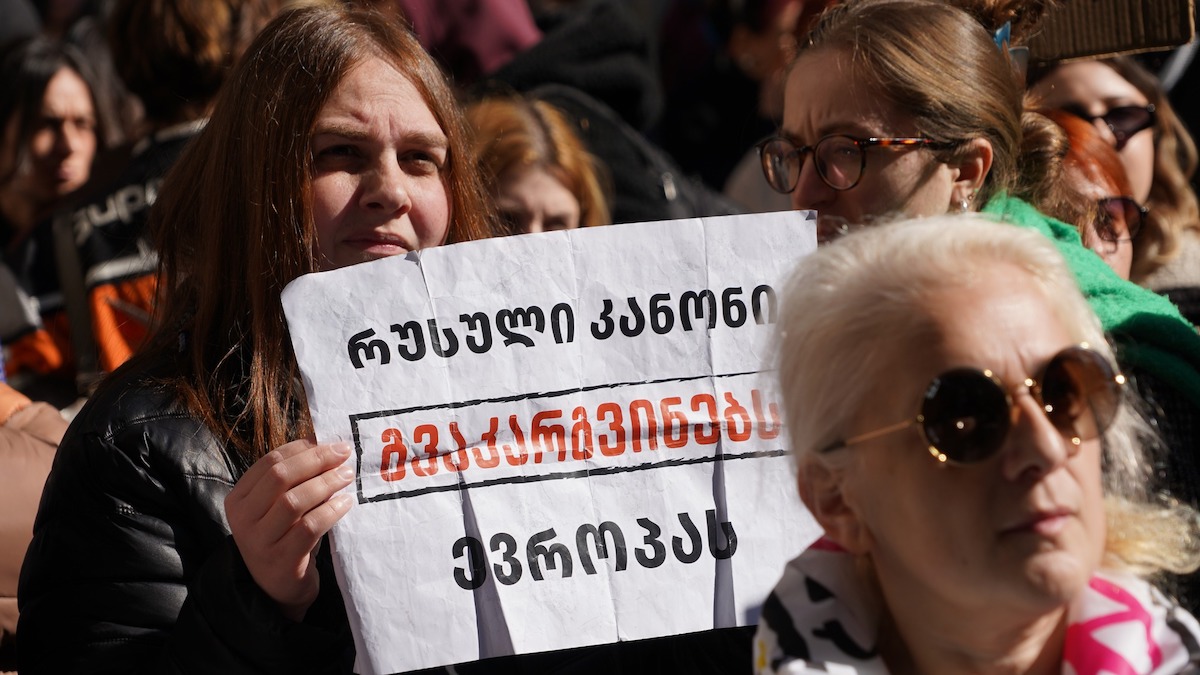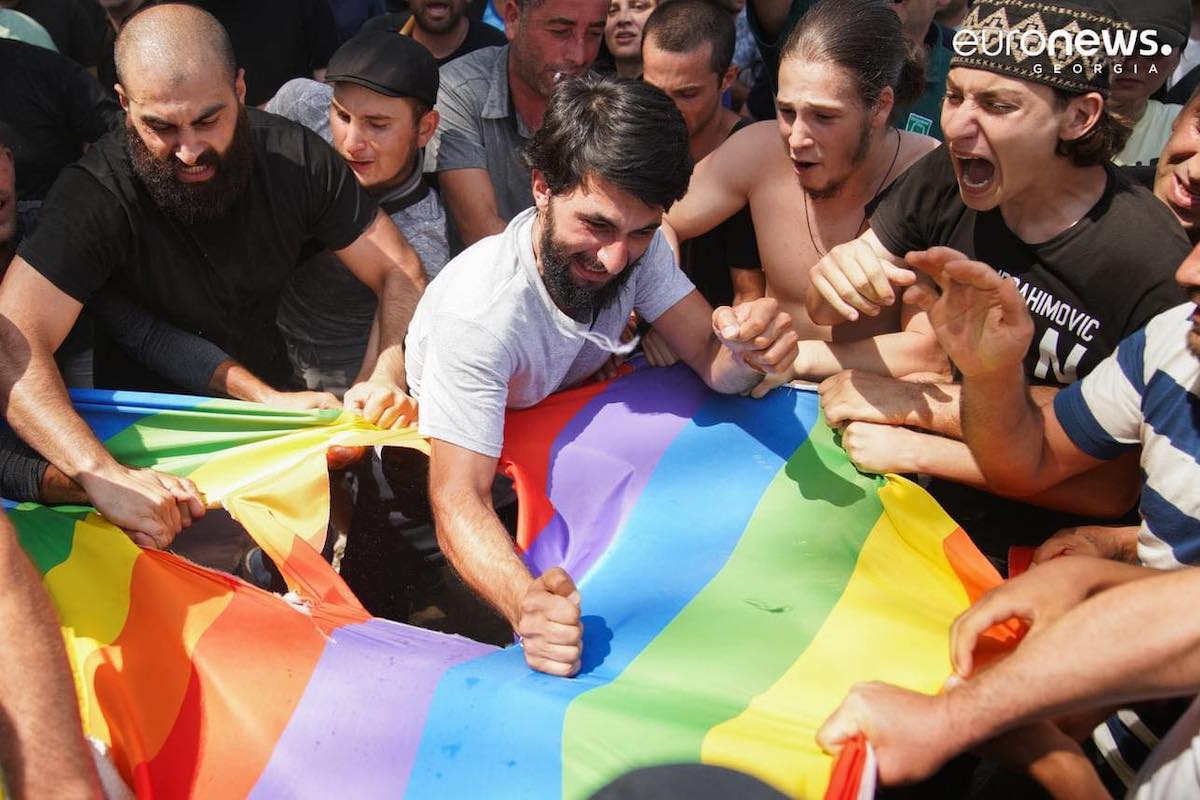
Georgia passes anti-LGBT law
The Georgian Parliament has passed a discriminatory and homophobic anti-LGBT law, with 84 MPs voting in favor.
The ruling party, Georgian Dream, claims the law is meant to “protect family values,” but in reality, it restricts LGBT+ rights and imposes censorship.
The party plans to finalize the law during the autumn session. The package includes 19 bills, which also limit freedom of assembly and introduce media censorship.
The main bill is titled “On the Protection of Family Values and Minors,” with the other 18 stemming from it.
As part of this homophobic agenda, Georgian Dream also aims to amend the constitution, though they currently lack the constitutional majority required. parliamentary speaker Shalva Papuashvili indicated they may pursue these changes after the elections if they secure a majority.
The party also seeks to amend Article 30 of the constitution, which defines family as a union between a man and a woman, by adding a clause stating: “The protection of family values and minors is ensured by the constitutional law of Georgia.”
Venice Commission’s conclusion
The Venice Commission has issued a critical opinion on the anti-LGBT law. It expresses concern that this legislative initiative, dealing with highly sensitive issues, was introduced during a period of large-scale, prolonged protests and significant political and social tension in the country.
The Commission also regrets that the changes are proposed just a few months before the elections, which it believes disregards concerns previously raised by international observers.
The Venice Commission recommends conducting a thorough analysis before adopting the new amendments, involving all segments of society, especially representatives of sexual and gender minorities, as well as experts from relevant fields (law, healthcare, education, social services, etc.).
“This analysis should be publicly available and conducted within a timeframe necessary for consultations to ensure a fair and unbiased assessment of the contentious issues,” the opinion states.
Regarding the legal assessment of the bill, the Venice Commission, considering the case law of the European Court of Human Rights and its previous opinions, notes that compliance with European and international standards cannot be established due to the reasons mentioned.
“Even a single provision in this bill creates risks of fostering a hostile and stigmatizing atmosphere against LGBT+ individuals in Georgia,” the Commission concludes.
Georgia passes anti-LGBT law
What the bill proposes
- Marriage and adoption: Georgian Dream aims to include a provision stating that alternative unions, other than those between a man and a woman, cannot be registered. Additionally, queer individuals will be barred from adopting minors. It is worth noting that queer people in Georgia already face limitations on these rights under current laws.
- Transgender rights: The changes further restrict the rights of transgender individuals by limiting access to medical services, gender-affirming procedures, and recording gender identity in official documents.
- Freedom of expression: The amendments also curtail freedom of expression. According to Shalva Papuashvili, it will be prohibited to promote information in educational institutions that advocates for gender identities different from one’s biological sex, same-sex relationships, or incest.
- Media restrictions: The bill will ban the dissemination of such information on television, likely leading to the removal or technical editing of specific scenes from films.
- Public assemblies: If passed, the law will prohibit public gatherings and demonstrations aimed at promoting gender identities different from one’s biological sex, same-sex relationships, or incest.


